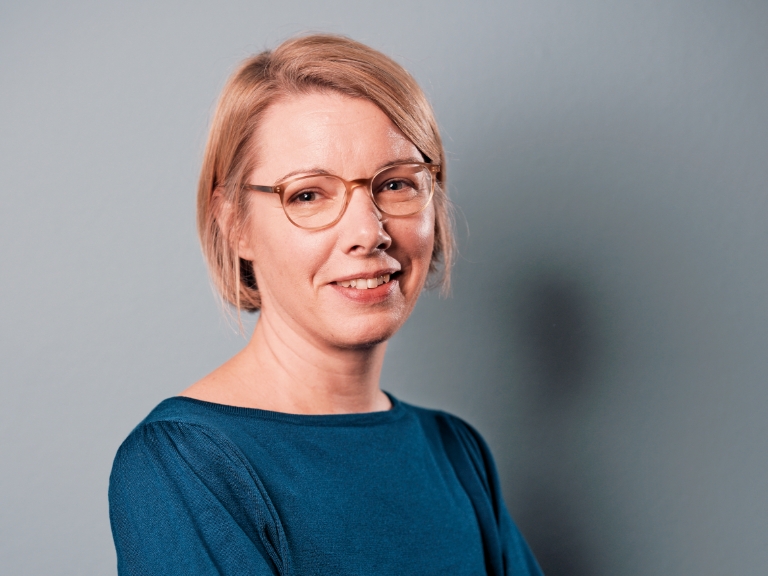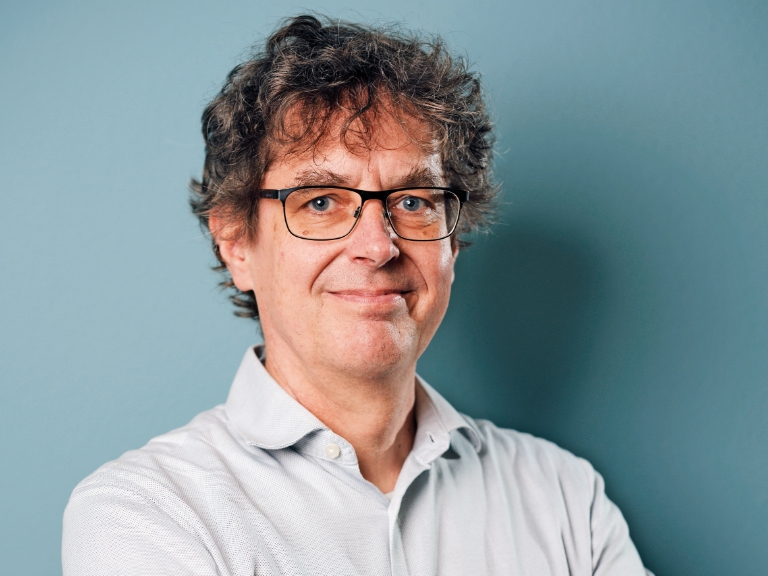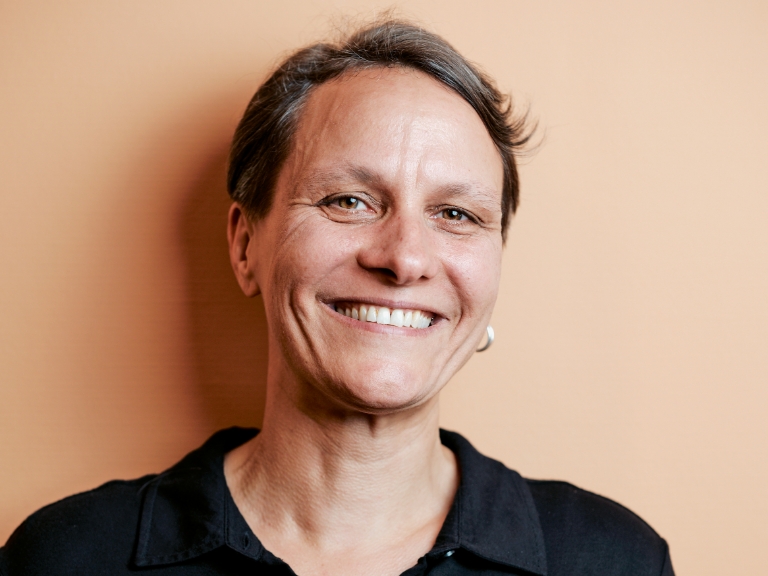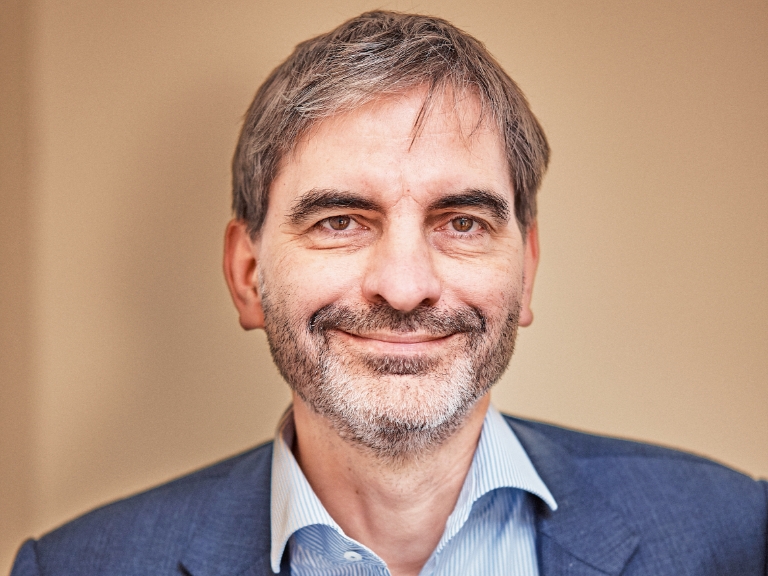Interview with the rector
The university in the social area of conflict
Student numbers are increasing and financial resources are becoming scarcer. Rector Virginia Richter talks about how the University of Bern meets this challenge, defends academic freedom and participates in socially relevant debates.
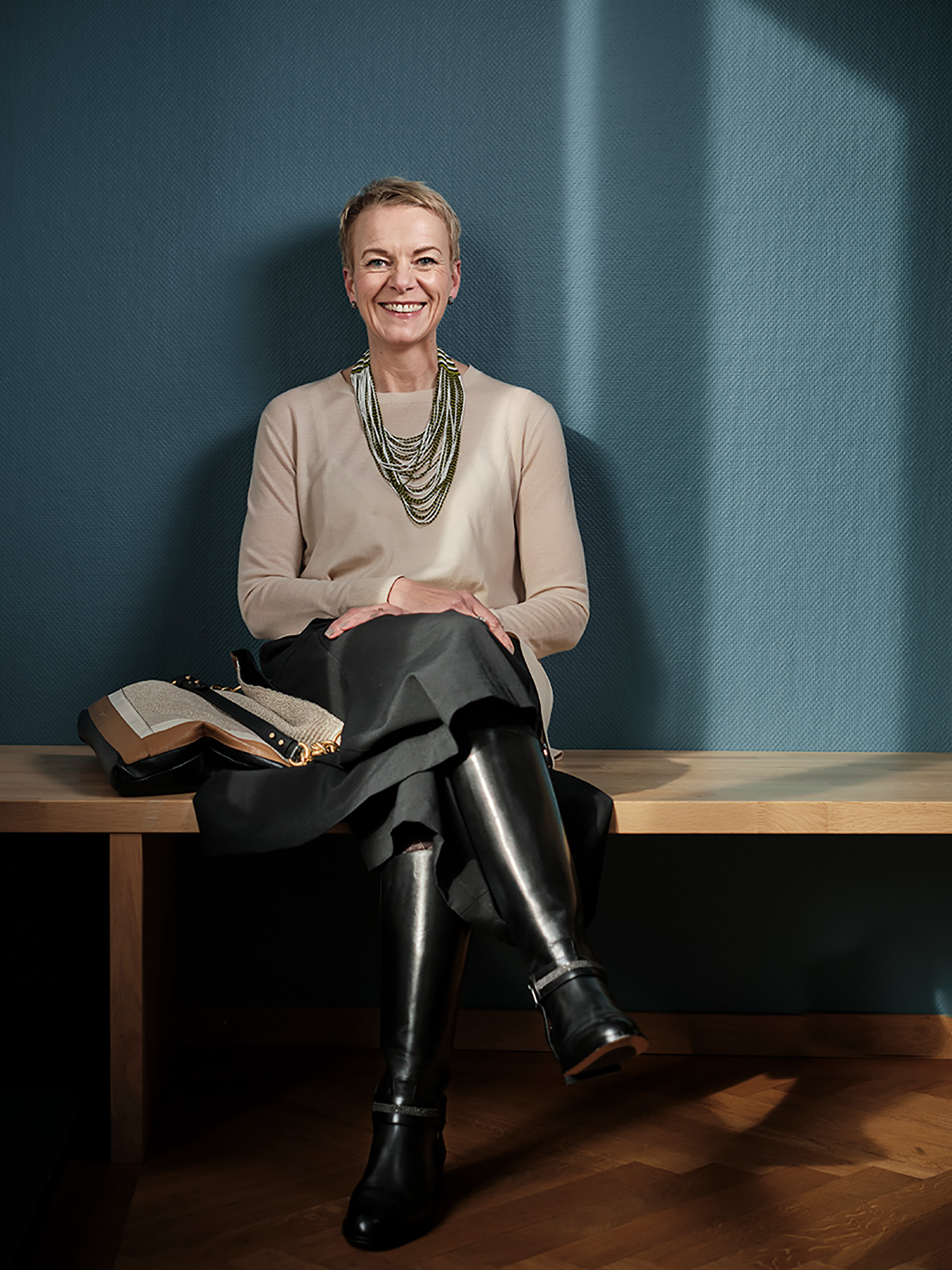
Virginia Richter: At universities, research and teaching are closely interlinked. Science is often ahead of its time – for example, climate research warned of today’s problems 50 years ago. Such knowledge from current research is quickly incorporated into teaching. In addition, as citizens, researchers are also active in committees and associations. They are aware of developments in society and bring them to universities. In climate research, for example, there has been a shift from purely scientific approaches to complementing these approaches with social sciences because this is the only way to develop effective solutions to the climate crisis. Such developments can, for example, lead to new, attractive degree programs.
Is there political and social pressure on courses and content that can and should be taught?Politicians do not intervene at the level of the individual course. However, the University is politically and financially dependent on the canton. We receive a public service mandate that is developed together with the government. I find this to be a very cooperative partnership. We are accepted as experts, but we certainly need to convince politicians of our concerns. The relevance of certain disciplines that are no longer in so much demand is discussed, as is the shortage of skilled workers in other areas – just as they are in the media and society. However, politicians do not say that we are not allowed to teach certain topics. The independence of research and teaching is enshrined in the constitution and widely accepted, but academia must always be aware that this independence goes hand in hand with responsibility.
Voices from the University of Bern
How political would you like it to be?
How do professors manage to keep the discourse in their courses open and unbiased? And what experiences do they have outside the lecture halls with attempts at political appropriation? Four professors express their opinions:
Julia Richers, historian
Stefan Brönnimann, climatologist
Patricia Purtschert, gender researcher
Aymo Brunetti, economist
Freedom primarily encompasses the free choice of topics and academic methods that are incorporated and used in research and teaching. But of course, no one is completely free, there are plans of studies, and there are more suitable methods depending on the field of research. There are also critical discussions among researchers and lecturers at the institutes.
Have you personally ever been restricted in this freedom?As a professor, I have not experienced any restrictions in terms of content. But there have been intensive discussions about terminology, quotations and sensitive issues. The younger generation in particular is much more sensitive to the use of certain terms. How do you deal with the situation when older texts speak of “primitive peoples” for example? How do you bridge the historical gap? Do you wipe out traces if you delete certain words? How do you work with that in an educational context? These are passionate debates about methodology and content, which are very important because they always make you question your own position. Critical questioning is the be-all and end-all of academic work, and we also teach students that. In my view, we should promote a culture of free thinking and critical questioning everywhere.
Magazine uniFOKUS

Studying as a launchpad
This article first appeared in uniFOKUS, the University of Bern print magazine. Four times a year, uniFOKUS focuses on one specialist area from different points of view. Current focus topic: Studies
Subscribe to uniFOKUS magazineFreedom and responsibility are interdependent. Critical questioning therefore also includes self-reflection. If, as a university member, you take the freedom to say controversial things, you also have to take responsibility. However, it is also important to me that we actively seek dialog, that we leave the narrow confines and, for example, also take part in events in which not only our own specialist audience takes part. There are also great formats at the University of Bern, such as the Night of Research, in which we show a wide audience what we do in research and teaching. But sometimes it is not easy to cross that line. It can be challenging to explain subject-specific, complex findings in such a way that they are understandable to everyone.
You mentioned at the beginning that university members are also citizens and therefore also contribute to society. What about politically active lecturers whose field of study is related to political activities?We need to distinguish between the role of the person as a citizen and the role of that person as an expert. As citizens, university members have the same rights as everyone else. And the entire political spectrum is also represented at any university. What can be expected of university members, however, is that they are aware of their own position and that they draw a line between political agitation and balanced, method-driven teaching.
Are there any control mechanisms at the University of Bern for this?Quality control is important and there are, for example, regular course evaluations and various peer review processes. But there is no form of mind control. It must be possible to decide within the institution and academic fields without fear what is the right choice in terms of content and methodology. This is the only way to ensure high-quality education.
Virginia Richter
has been Rector of the University of Bern since June 2024. She has a PhD in General and Comparative Literature from the University of Munich. She has been working at the University of Bern since 2007, first as Professor of Modern English Literature, later as Director of the Institute, as Dean of the Faculty of Humanities and from 2021 as Vice-Rector.
Subscribe to the uniAKTUELL newsletter

Discover stories about the research at the University of Bern and the people behind it.
